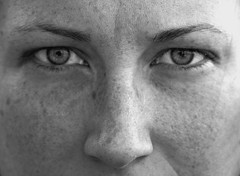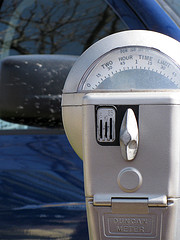 Memorial Day is over. The flood of stories and social media posts supporting the troops has subsided and for most people it is an ordinary Tuesday back at work. A lot of the veterans we paid homage to yesterday spent last night on the streets, and a growing percentage of them were female veterans.
Memorial Day is over. The flood of stories and social media posts supporting the troops has subsided and for most people it is an ordinary Tuesday back at work. A lot of the veterans we paid homage to yesterday spent last night on the streets, and a growing percentage of them were female veterans.
Rosanne Haggerty, president of Community Solutions, recently noted the disturbing number of veterans “living rough” in the wake of serving our country (via The New York Times):
Right now, on any given night, roughly 68,000 veterans are homeless in the United States. Within that number, a group of at least 14,000 have been homeless for a year or more and suffer from at least one chronic — and costly to treat — health condition. These long-term, chronically homeless veterans typically don’t make it off the streets without specific, targeted help.
When you take into account the changing gender ratio of our military forces, these numbers become even more disquieting.
Annie Gowan of The Washington Post brings us the current statistics:
Officially, homeless female veterans number 3,328, a figure that doubled from 2006 to 2010, according to an estimate from the Government Accountability Office. The GAO says the data are incomplete and that the number is probably higher. Many of these homeless women are mothers, middle-aged or suffering from a disability.
Unfortunately there does not seem to be available data at this point on how many of those female veterans have children along with them.
The VA acknowledged in the report that there was an “acute” need to improve services for the growing number of female veterans. They are more likely to be diagnosed with mental health problems and to have suffered sexual trauma during their military service and have a greater risk of homelessness than their male counterparts, the report said.
Although the overall statistics on veteran homelessness show a steady reduction over the past few years, Gowan points out that the number of homeless women veterans is sharply rising.
On the bright side, we are slowly seeing awareness of the problem spread, and in some places solutions are actively being sought. In Fairfax, one organization is making strides in combating this exact issue.
Final Salute was founded by Jas Boothe, an Army National Guard captain. Not only did she serve our country, but she also lost everything in Hurricane Katrina, and was diagnosed with cancer in addition to becoming homeless herself. Eventually she was able to pull out of the nosedive and is remarried with a baby and a career as a human resources officer for the National Guard. Once she was back on her feet, she decided that her priority was to give back and help those who have suffered similar trials.
The result is a program that focuses on the needs of female veterans. The shelter can house a maximum of eight women and children at any given time, and residents have two years in which to get back on their feet.
In order to be admitted to the shelter, residents must commit to job training and, if they find work, contribute 20 percent of their income toward food and utilities. Final Salute currently has a waiting list of 20.
Granted that eight at a time is hardly a number that will dent the fearsome statistics we are facing, it is still a fantastic template for future efforts.
It is only the first step. We must take many more if we are to defeat this great enemy facing our soldiers.




 The people behind the Poverty Insights website have been following the New York Department of Homeless Services study of the city’s homeless services programs. The Department is under fire for performing a
The people behind the Poverty Insights website have been following the New York Department of Homeless Services study of the city’s homeless services programs. The Department is under fire for performing a  Winter is coming, and that is a bad time to be without shelter. The further north you go the harsher the climate, and thus the harder it is to survive unsheltered. Think about it when you run from your front door to your car, from island of heat to island of heat. Now think about that moment in the cold and stretch it out to days, weeks, months. For many, especially the very young and the very old, it can be the last season they will ever see.
Winter is coming, and that is a bad time to be without shelter. The further north you go the harsher the climate, and thus the harder it is to survive unsheltered. Think about it when you run from your front door to your car, from island of heat to island of heat. Now think about that moment in the cold and stretch it out to days, weeks, months. For many, especially the very young and the very old, it can be the last season they will ever see. It is a fact of the modern, media-driven mentality that celebrities attract a lot of attention. This is frequently leveraged, where possible, to attract attention to causes of various sorts. Back in my home town of New Orleans, Brad Pitt is the resident champion of sustainable housing. Jerry Lewis has his famous telethon; Oprah consistently casts her spotlight on social issues, and so on.
It is a fact of the modern, media-driven mentality that celebrities attract a lot of attention. This is frequently leveraged, where possible, to attract attention to causes of various sorts. Back in my home town of New Orleans, Brad Pitt is the resident champion of sustainable housing. Jerry Lewis has his famous telethon; Oprah consistently casts her spotlight on social issues, and so on. Orlando, Florida, is preparing to experiment with a new way of raising funds to help the homeless. Taking a novel stance, the city is getting ready to install a number of parking meters downtown, the funds from which are to be dedicated to the issues of the homeless.
Orlando, Florida, is preparing to experiment with a new way of raising funds to help the homeless. Taking a novel stance, the city is getting ready to install a number of parking meters downtown, the funds from which are to be dedicated to the issues of the homeless.







